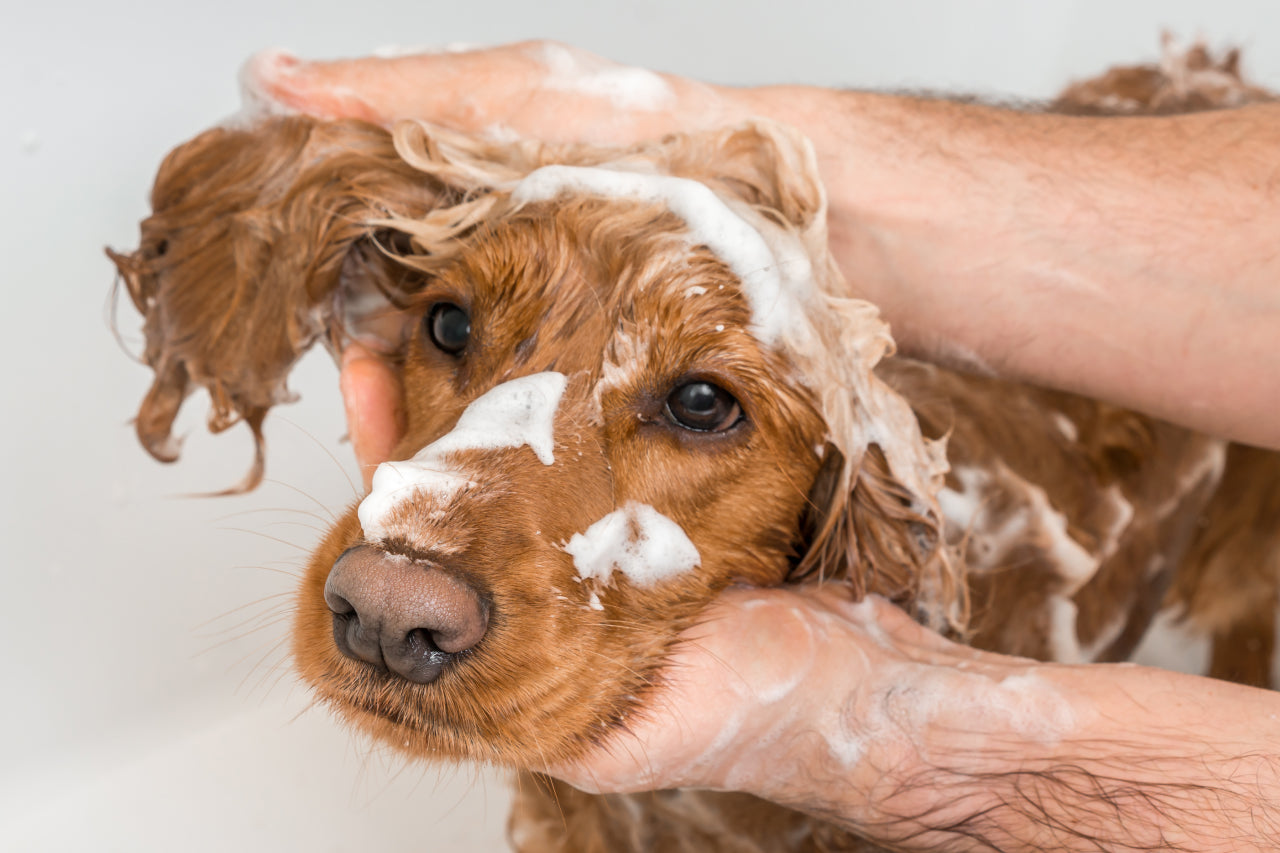
Home Remedies for Dogs with Itchy Skin
Scratching, biting, licking – these are all signs of itchy skin. While it is normal for your fur baby to be itchy occasionally, excessive itching can indicate an underlying problem. In this blog we will discuss the potential reasons why your dog may have itchy skin and offer some effective and safe home remedies to help soothe your dog's itchy skin.
Common Causes of Itchy Skin
Before jumping into how to help relieve itchy skin, it is important to realize that there are many different causes for itchy skin in dogs. Understanding why your dog is itchy will be the key to helping them, as not every home remedy will provide relief for every cause of itching.
The most common causes of itchy skin in dogs include:
1. Environmental Allergy (Atopy)
Dogs can be allergic to pollen, mold spores, and other environmental factors. These allergies are typically seasonal, so you may notice your dog scratching more during a certain time of year, such as springtime, when allergens are prevalent.
2. Contact Allergy
Dogs can also develop allergic reactions when their skin comes into direct contact with certain materials, such as certain fabrics, cleaning products, or plants like poison ivy.
3. Flea Allergic Dermatitis
Fleas are a common external parasite that can trigger allergies in dogs. Some dogs are hypersensitive to flea saliva, causing severe itching and discomfort even from just a single flea bite.
4. Food Allergy
Just like people, dogs can develop allergies to certain ingredients in their diet. Common allergens include beef, chicken, dairy, wheat, and lamb. Food allergies are often not seasonal and occur all year round. The only way to diagnose a food allergy is to perform a diet elimination trial.
5. Dry, Irritated Skin
Dogs, especially those in dryer and cooler climates can develop dry, irritated skin just like people. Flare-ups tend to occur in months when the weather is cold and dry.
Home Remedies for Itchy Skin
Now that you know what could be causing your dog’s itchy skin, let’s jump into what to do about it. While professional veterinary care is crucial for accurate diagnosis and treatment, here are several home remedies that can provide relief to your canine companion while waiting for their vet appointment.
Wipe down paws and coat regularly
If your dog suffers from environmental or contact allergies, use a damp towel to wipe down their coat and paws when they come in from a walk. This will reduce the allergens they may have picked up from outside, such as pollen.
Regular bathing
Bathing your dog with an oatmeal-based, fragrance-free shampoo for dogs can help soothe dry, itchy skin.
Regular grooming
Maintaining a proper grooming routine is essential for a dog's overall skin health. Regular brushing removes loose fur, dirt, and debris that can contribute to itchiness.
Maintain proper hydration
Ensuring your dog is well-hydrated helps maintain healthy skin and prevents dryness.
Supplement omega-3 fatty acids
Another way to tackle itchy, dry skin at home is by increasing the amount of omega-3 fatty acids in your dog’s diet. This is commonly done through food additives/supplements. Our skin and coat supplement is a great choice as it is packed with omega-3 fatty acids.
Antihistamines
If you suspect your dog has environmental allergies, antihistamines such as diphenhydramine (benadryl) and cetirizine (zyrtec) are safe for dogs as long as they don’t contain any decongestants. It is important to keep in mind that dosages for dogs are not the same as for people. Your vet can guide you in the appropriate dosing of these products.
Epsom salt soaks
If your dog is constantly licking their paws, it is most likely related to allergies or other contact-related irritants, and an epsom salt soak may be helpful. Dissolve Epsom salt in warm water and soak your dog’s feet for about 5-10 minutes at least once per day. This can not only help wash off environmental allergens and contaminants, but it can also reduce inflammation, and soothe the feet.
Dawn dish soap bath
Because there are so many safe and effective flea preventatives on the market today, at-home flea treatment is rarely needed. However, if you are in a pinch or have a puppy that is too young or too small for approved products, you can bathe them with original-scent Dawn dish soap. This will kill adult fleas immediately, but will not deal with a flea infestation so it is imperative to speak to your vet about proper flea prevention.
Use an Indoor Air Purifier
If you suspect your dog suffers from environmental allergies, making changes to their environment can help reduce their exposure to allergens. Replacing your air filters regularly and using an indoor air purifier can help to reduce the amount of pollen and other allergens in your home.
Hydrolyzed or Novel Protein Diet
A balanced and nutritious diet plays a significant role in a dog's skin health. As mentioned, a diet high in omega-3 fatty acids can promote healthy skin and reduce inflammation. Moreover, if you suspect your dog has a food allergy, consult your vet. Allergen avoidance is the key to dealing with food allergies, which means feeding either a hydrolyzed protein or novel protein diet such as Wild Earth. Wild Earth dog food is free from the top five most common food allergens for dogs: beef, dairy, chicken, wheat and lamb. Our high protein formula is also free from less common allergens such as pork, egg, corn, and soy, making our food a great option for food allergic dogs.
Consult Your Veterinarian
While these home remedies can provide temporary relief for your itchy pup, it's important to remember that they might not address the underlying cause of the itchiness. If your dog's itching persists, worsens, or is accompanied by other symptoms like hair loss, redness, or swelling, seeking professional veterinary care is crucial for proper diagnosis and treatment. Your veterinarian can provide tailored recommendations and ensure your furry friend's well-being.




























